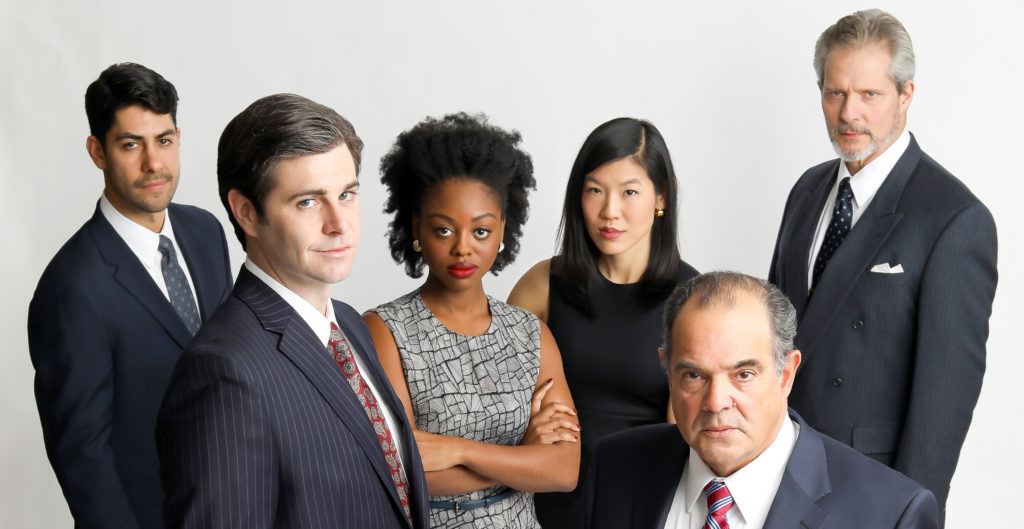Culture
 Photo: Tony Powell
Photo: Tony Powell
A Conversation with Edward Gero on Arena Stage’s “Junk”
April 3, 2019 @ 12:00am
Pulitzer Prize winner Ayad Akhtar’s play Junk is coming to Arena Stage on April 5. Inspired by the debt crisis of the 1980s, Junk explores the ruthless world of finance and its effects on American values. Acclaimed DC stage actor Edward Gero plays the role of Thomas Everson, the owner of a steel manufacturing company, who is confronted when junk bond giant Robert Merkin plots the hostile takeover of the family company. Gero talked to On Tap about Junk and his experience with the production so far.
On Tap: How did you learn about Junk and land your role in the play?
Edward Gero: Actually, [Artistic Director] Molly Smith asked me to come in and read for it. She knew Jackie Maxwell, who’s directing the play, was looking for somebody, and they asked me to come in and read. I put an audition on tape with Thomas Keegan, who’s playing the role of Merkin and sent that out, and I got cast. That was about a year ago. And of course, I heard about the play because it had a great run in New York in 2017–it’s been produced around the world—and the playwright Ayad Akhtar is a Pulitzer Prize winner for Disgraced in 2013. He’s a playwright of some importance, so it was a project I was interested in doing. Plus, the subject matter too, it’s a really complicated play, an interesting play about the junk bond raiders of the 1980s.
OT: Why did you want to be a part of the production?
EG: I was really interested in the play. I had not worked with Jackie Maxwell before, and I was very excited about that. I also love working at Arena. And it’s a really terrific role. I play Thomas Everson, the owner of what’s called Everson Steel, which is sort of a stand-in for, let’s say, U.S. Steel—it’s a Dow Jones Industrial company. They become the target of a takeover, and he sort of holds down the old economic values. He was born into the company, 3rd generation in his family, he has commitment to the workers and he’s sort of overwhelmed by this takeover. So, it’s an interesting role to play in terms of facing the future. It becomes quite a shock to him.
OT: Was working with Ayad Akhtar a goal for you?
EG: Not particularly, but when I heard the play was going to be produced, I was interested in it right away because I knew it would be a very smart play. I’m interested in plays that are intellectually stimulating, and this certainly was that. It’s a language play too. It’s deep-in-the-weeds about blue economics. It moves at such a pace like a Shakespeare play, and Ayad had made the comparison. He’s been influenced by both David Mamet and Shakespeare, so it’s a very heavy language play. Yet you end up getting is into the relationships of these people. If you don’t follow all of the weeds and information about the new economics, you’d get really compelling relationships between these people.
OT: Can you describe your character Thomas Everson?
EG: Thomas Everson is a man of a certain age—he’s probably late 50s, early 60s. He’s inherited this role as a CEO. His father father had it before him, his grandfather started the company. They come out of the late 19th century industrial magnets. [He is] someone who makes steel to make money, where the characters of Merkin for example, are just out to make money by turning debt into assets and doing these raids and hostile takeovers. It’s something [Everson] didn’t necessarily want to, but felt obligated to take it over. His father is no longer with him, but the burden and responsibility of keeping the steel mill alive and keeping that legacy of his father alive drives him and actually becomes his downfall. Where the other characters are contemporary, young and aggressive, he’s trying to hold on to an older version of what America is. That’s really what the play is about. In guise of finance, it’s really about a generational change of what’s happened to America. Ayad said really brilliantly that the play was really about how Americans moved from being citizens to being consumers; Everson is sort of the last of that generation.
OT: Did you identify with him in any way? Is that important to you when you’re developing a character?
EG: Well, you try to find ways into the character. My dad was not a steel magnate. However, he was a president of a local United Auto Workers union for 25 years, so I grew up in a labor house. I can use that experience and I understand that mentality of wanting to do the best for the workers. But management now and management then are two different things. Of course, management is in the business of making money, but he also knows he’s got this whole community. The town where Everson lives in, there’s Everson High School, Everson Street, Everson Road, Eveson Park. He’s sort of the leading citizen of that whole area. So, I use my own experiences of growing up with my dad as an entryway, but then I have to go into the imagination of the character, which is different.
OT: What kind of research did you do to prepare for the role? Did you study the financial crisis of the 80s?
EG: For sure. I mean, I lived through it. It takes place in New York in the 80s. I was there then, and I had friends who worked on Wall Street. The New Years Eve party from 1979 to 1980 was an amazing party. A friend of mine from high school owned a loft. He had written the first arbitrage trading program for IBM and other friends of mine were working on the Street, so the whole culture of that period, I lived. I have that first-hand experience.
OT: You’re a prolific stage actor in DC. What do you think makes this play interesting to a DC audience?
EG: I think it’s very smart in a way that, let’s say, The Originalist was red meat for lawyers, this is certainly red meat for economists. The whole financial structure is sort of a nexus between economics and law, and that’s certainly policy making. It’s very relevant to this community, and I think audiences will come to this with a certain understanding. I’m sure the economists in the room will be saying, “Well, that might not be true,” the lawyers are saying, “That’s good, that’s right,” so there’s that kind of engagement. Washington has one of the smartest audiences, if not the smartest audience, in the United States because of the people who are here.
OT: You touched on this earlier, but as a Shakespearean actor do you see any parallels to this play?
EG: Oh, absolutely. I drew the connection to it directly with Henry IV, but there’s also the characters of Merkin and his wife that had a Macbeth and Lady Macbeth kind of feel to them too—she’s a very strong advocate for Merkin and steals him all the time. This play is going to fly. I think it started on Broadway as a three-hour, three-act play. It’s now a two-hour, one-act play. There’s been extensive cuts, extensive re-writes and it flies. So, articulation, as it would be in Shakespeare, it has to drive, it’s a lot of information, but like Shakespeare, there’s really no subtext to it. It’s not people sitting and thinking and mulling things over and becoming external, it’s just always going forward and that’s very Shakespearean in terms of dealing with language.
OT: Is there anything you want audiences to take away from the play?
EG: I think they’re going to have an experience that will make them question where we are going in terms of our economics and how we interact with each other, the sort of brutal capitalism of this play. Certainly in this upcoming election cycle, it’s going to be in issue. Looking at this administration, how ruthless are we willing to be in terms of selling our brand or making money and how do we balance that with the policy making and where’s the human element to it? So, I think people will come away probably not changing their points of view about politics or economics. It might strengthen the beliefs they already have. But it’s certainly going to take them on a ride. It’s a rollercoaster.
Junk opens at Arena Stage on April 5. The play runs through May 5. For more information and tickets, visit www.arenastage.org
Arena Stage: 1101 6th St. SW, DC; 202-554-9066; www.arenastage.org







